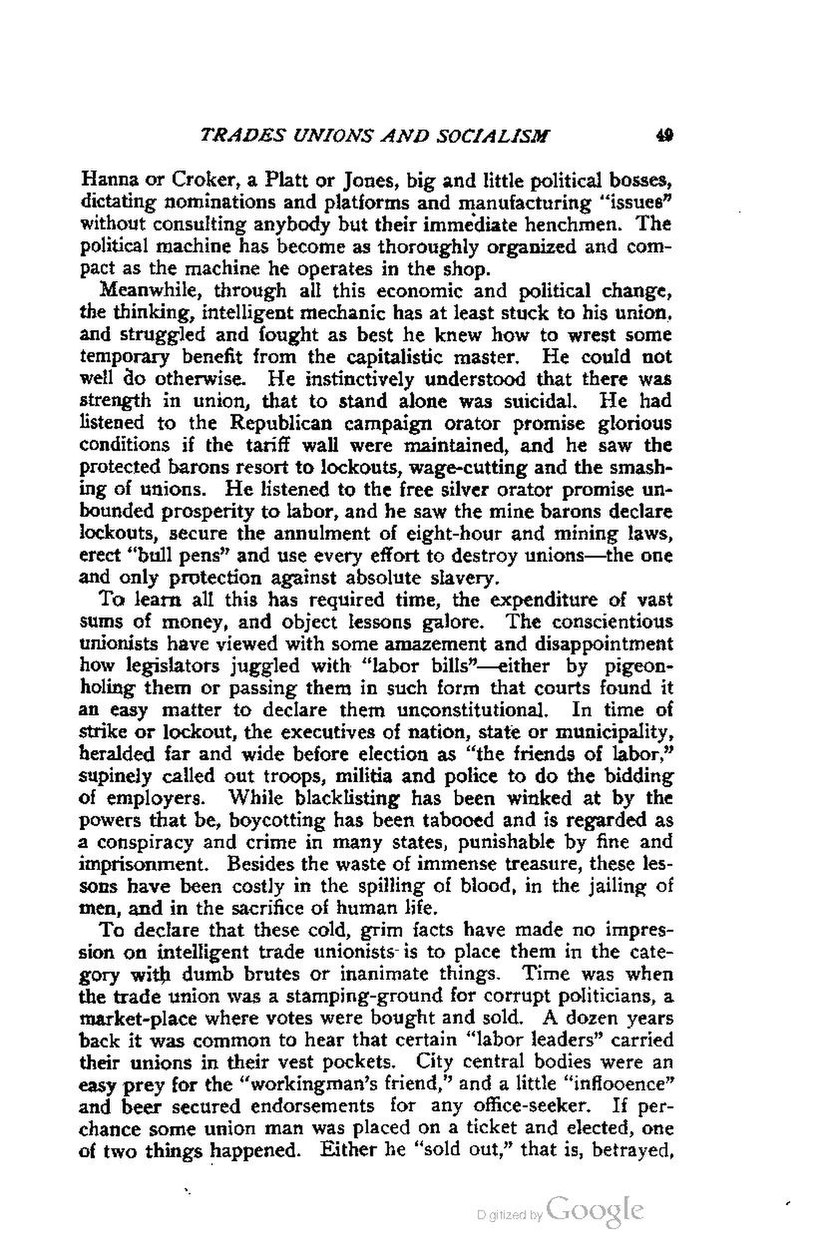Hanna or Croker, a Piatt or Jones, big and little political bosses, dictating nominations and platforms and manufacturing "issues" without consulting anybody but their immediate henchmen. The political machine has become as thoroughly organized and compact as the machine he operates in the shop.
Meanwhile, through all this economic and political change, the thinking, intelligent mechanic has at least stuck to his union, and struggled and fought as best he knew how to wrest some temporary benefit from the capitalistic master. He could not well do otherwise. He instinctively understood that there was strength in union, that to stand alone was suicidal. He had listened to the Republican campaign orator promise glorious conditions if the tariff wall were maintained, and he saw the protected barons resort to lockouts, wage-cutting and the smashing of unions. He listened to the free silver orator promise unbounded prosperity to labor, and he saw the mine barons declare lockouts, secure the annulment of eight-hour and mining laws, erect "bull pens" and use every effort to destroy unions—the one and only protection against absolute slavery.
To learn all this has required time, the expenditure of vast sums of money, and object lessons galore. The conscientious unionists have viewed with some amazement and disappointment how legislators juggled with "labor bills"—either by pigeonholing them or passing them in such form that courts found it an easy matter to declare them unconstitutional. In time of strike or lockout, the executives of nation, state or municipality, heralded far and wide before election as "the friends of labor," supinely called out troops, militia and police to do the bidding of employers. While blacklisting has been winked at by the powers that be, boycotting has been tabooed and is regarded as a conspiracy and crime in many states, punishable by fine and imprisonment. Besides the waste of immense treasure, these lessons have been costly in the spilling of blood, in the jailing of men, and in the sacrifice of human life.
To declare that these cold, grim facts have made no impression on intelligent trade unionists is to place them in the category with dumb brutes or inanimate things. Time was when the trade union was a stamping-ground for corrupt politicians, a market-place where votes were bought and sold. A dozen years back it was common to hear that certain "labor leaders" carried their unions in their vest pockets. City central bodies were an easy prey for the "workingman's friend," and a little "inflooence" and beer secured endorsements for any office-seeker. If perchance some union man was placed on a ticket and elected, one of two things happened. Either he "sold out," that is, betrayed,
